The Delaware Business Times recently announced the 2021 honorees of its inaugural CEO of the Year program. The new awards program honors the efforts of Delaware’s top-ranking business leaders in both for-profit and nonprofit sectors.
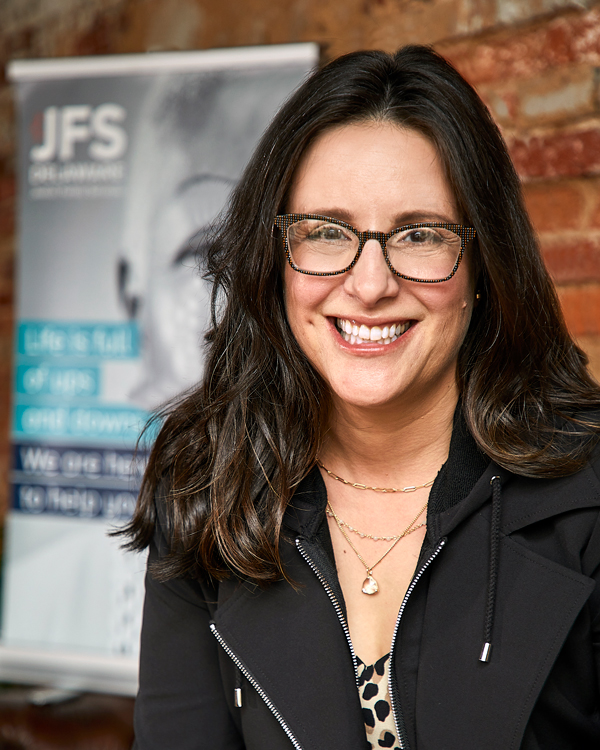
(Photo by Luigi Ciuffetelli)
JFS is grateful to share that our CEO, Basha Silverman, was named the Medium Nonprofit CEO of the Year Honoree. The award announcement read:
Basha’s passion, innovation, collaboration, and resourcefulness have inspired the staff, partners and leaders she works alongside and has set JFS Delaware up for countless successes. Her example of leadership is one many can aspire to.
Read more about the honorees in the Delaware Business Times Announcement.
Read about Basha’s professional journey HERE!
Written by: Emma Driban, JFS Content Developer
In Delaware alone, there is an estimated 19,000 residents aged 65 and older currently living with dementia, according to the Alzheimer’s Association 2021 Alzheimer’s Disease Facts and Figures. While that number is significant, it does not convey the number of people who are impacted by dementia or Alzheimer’s Disease. When a family member is diagnosed with Alzheimer’s disease or other dementia, the diagnosis can have an overwhelming effect on the entire family. Between processing new medical needs and the rapid changes occurring in the person who has been diagnosed, it can be hard to navigate many of the necessary decisions about treatment, finances, living arrangements, and care.
“Alzheimer’s disease is life changing—not only for the person living with the disease but for family and friends as well,” says Katie Macklin, Senior Director of Advocacy for the Alzheimer’s Association Delaware Valley Chapter. “It is important for caregivers and those living with the disease to have an understanding of what to expect as the disease progresses, the best ways to deal with its many challenges, and for them to know that there is support available.”
Providing support for individuals with dementia as well as their caregivers and family members is a critical part of helping families manage dementia-related diagnoses. Where some support systems might focus more heavily on the medical aspects, an interdisciplinary, social services model emphasizes the importance of guiding families as they face the challenges of caring for a family member with dementia, understanding and honoring individual values and preferences, and addressing new concerns and issues as they arise throughout the course of the disease.
“[Alzheimer’s is a disease] where you’re talking about the patient going through a pretty intense evolution in terms of their neurological capabilities and their physical capabilities, which affect them on all levels—physically, mentally, emotionally.” Natalie Reese, a caregiver participating in JFS’ dementia care program explains, “caregivers are the ones bearing witness to that experience day in and day out . . . You have to learn to hold space for it.”
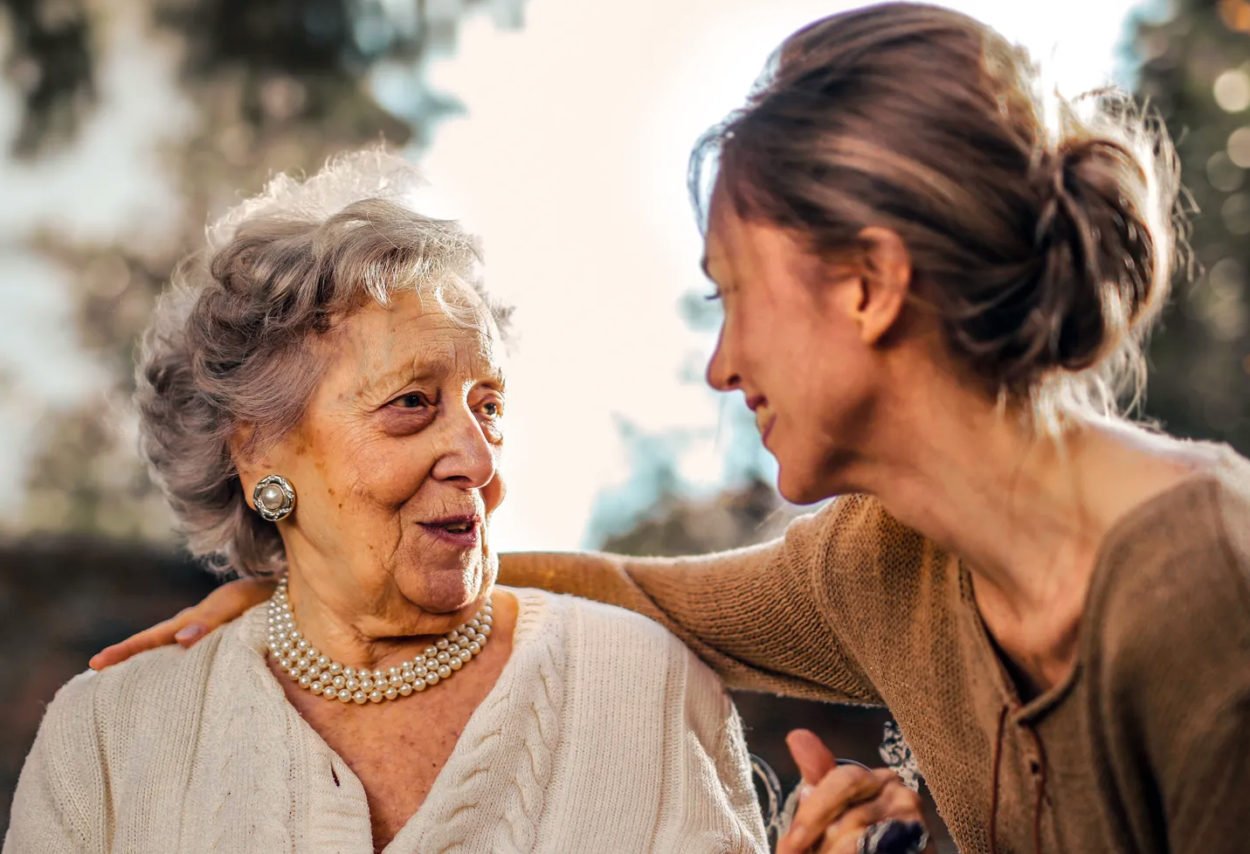 According to the Alzheimer’s Impact Movement (AIM), over one in three dementia caregivers say their health has gotten worse due to their care responsibilities and nearly 60% of Alzheimer’s and dementia caregivers rate the emotional stress of caregiving as high or very high, with 40% of family caregivers reporting they suffer from depression.
According to the Alzheimer’s Impact Movement (AIM), over one in three dementia caregivers say their health has gotten worse due to their care responsibilities and nearly 60% of Alzheimer’s and dementia caregivers rate the emotional stress of caregiving as high or very high, with 40% of family caregivers reporting they suffer from depression.
“Whenever facing difficult times, having a good support network for advice and encouragement may help you feel socially connected and give you a sense of belonging and purpose,” says Macklin. “The Alzheimer’s Association is excited to partner with JFS to raise awareness, to support individuals living with dementia and their caregivers, and to work together to lift up the needs of Delaware’s Alzheimer’s and dementia community.”
The most successful programs offer comprehensive support and resources as participants contend with the changing needs of the diagnosed individual, in terms of both medical and social needs. A medical-social approach assists participants in different areas of need, ensuring a more well-rounded network of support is formed.
Reese elaborates, “the structure of the JFS COMPASS program really feels like concentric circles that build out from the patient—so there’s the patient, the caregivers, and JFS wraps around that in a really supportive fashion. The fundamental structure is very different; it operates on a social services model instead of a medical model, which means it is really tied to wellbeing and the overall health of the patient and the caregivers.”
It is important for people facing a new diagnosis and their family members to remember that they are not alone. It can be challenging to find the right path, but with quality, local programs and organizations, support networks are available and ready to step in and offer a helping hand.
JFS COMPASS is a consultative program, led by a geriatrician and interdisciplinary team, providing medical care for individuals with dementia and critical social supports to caregivers. COMPASS was recently awarded the Network of Jewish Human Service Agency’s 2021 Pillar of Excellence Award for Innovation.
For more information about the Alzheimer’s Association, please visit ALZ.org or call their 24/7 Helpline at 800-272-3900.
Written by: Mollie Clupper, Public Ally for the Mental Health Association in Delaware
I am sure it’s hard to watch someone you love struggle with depression. Watch them pull away and isolate themselves. Listen to their unexplained, angry outbursts or complaints of exhaustion.
As someone who struggles with depression and anxiety, I have experienced all of these symptoms. So, while it might be difficult to watch, it is incredibly difficult to experience firsthand. I was once told by a family member that “it’s hard for them to understand” because they “can’t relate” or they “have never experienced mental health issues.”
First of all, that’s great! I wouldn’t wish what I experience on my worst enemy. Second of all, it is not for you to understand. People who struggle with depression often do not want your understanding, pity, or sympathy. It is not helpful to say “I understand what you are going through”, when you don’t.
Now, this isn’t to be critical, of anyone. And some people might want your understanding and acknowledgement. However, there are better ways to support those with depression. Here are some examples of what not to say in these situations and followed by more appropriate responses to use, instead.
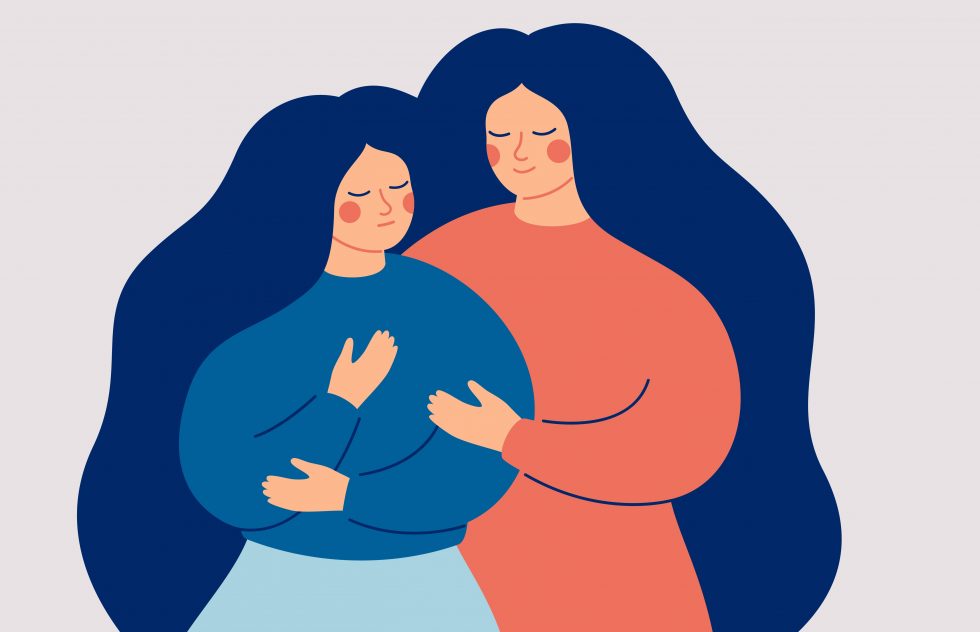
Have you ever heard of the man who told his wife “you need to calm down”, and then all was well? Yeah, me neither. The same goes with those who are struggling with depression, or other mental health issues. Avoid telling someone they need to simply calm down or they are “just being dramatic.” This can dismiss their symptoms, deny what they are feeling, and can be a bit insulting.
Instead, try using a phrase such as “I may not know exactly how you feel, but I’m here for you.” You don’t have to understand how the person feels in order to support them.
Avoid telling someone it is “their fault” that they are feeling depressed, or that it is all in their head. In fact, depression is not just a mental health disorder, but can often present many physical symptoms, as well. Some include “body aches, nausea, insomnia, fatigue, high blood pressure, and weight changes” (Schimelpfening, 2020).
It is also important not to shame someone for how they are feeling. People are often told that they are selfish and that “other people have it a lot worse.” It’s true, that there is always going to be someone who has it worse than you do. However, implying that someone is selfish and does not care for others, especially in the midst of a depressive episode, can be very harmful and fuel feelings of blame or guilt.
Instead, validate what the person is feeling by saying something such as “depression is a real health issue and should not be ignored.”
Just because you can’t see someone struggling, doesn’t mean they aren’t. It’s important not to dismiss how someone is feeling just because “they don’t look depressed.” Many people struggling with depression, and other mental health disorders, might hide it or put on a good face.
“People who need help, sometimes look a lot people who don’t need help.”-Glennon Doyle
So, what can you do about it? First, you don’t have to do anything. Just listen. Listening skills are an underrated asset, in many situations. It’s also important to listen without trying to “fix” anything.
It might also be a good idea to educate yourself on what they are going through. That being said, not everyone experiences depression the same, nor it is it your job to play therapist. Instead, maybe research actual therapists and other, outside support systems. Have it your disposal and offer it, when your loved one comes asking for help and input.
Finally, while unsolicited advice is not usually helpful, it IS important to speak up if you believe your loved one is at risk for self-harm. Know the resources and who to call for help, and don’t just ignore it. It is okay to share concern for your loved ones, even if it is just to say you are there for them when they need it.
If you or someone you know is experiencing depression, call the National Suicide Prevention Hotline number at 800-273-TALK (8285).
You can also call the Delaware Hope Line: (833) 9-HOPEDE, or (833) 946-7333
JFS Delaware is here to help you or a loved one on your mental health journey. Get started today by completing our online intake form.
For more support resources, make sure to also check out Mental Health Association’s Wellness Groups.
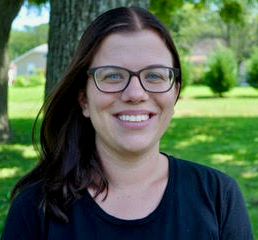 Mollie Clupper is working as a Public Ally AmeriCorps Apprentice for the Mental Health Association in Delaware. Using her own experiences, she wants to help bring awareness and end the stigma surrounding mental health. In her spare time, she enjoys hiking, drinking coffee, and spending time with her fur-niece.
Mollie Clupper is working as a Public Ally AmeriCorps Apprentice for the Mental Health Association in Delaware. Using her own experiences, she wants to help bring awareness and end the stigma surrounding mental health. In her spare time, she enjoys hiking, drinking coffee, and spending time with her fur-niece.
The Mental Health Association in Delaware (MHA) promotes improved mental well-being for individuals and families in Delaware through education, support and advocacy. MHA believes that every person, regardless of disability, race, ethnicity, gender, age, economic status, or sexual orientation, has the right to be treated with compassion and respect.
References:
Schimelpfening, N. (2020). The Physical Side Effects of Depression. Retrieved on 1/20/21 from https://www.verywellmind.com/physical-effects-of-depression-1066890
Written by: Catherine Kempista, Delaware Center for Horticulture Communications Manager
The First State. The Small Wonder. A place where everyone knows your name… and your neighbor’s name and your high school football coach’s name… you get the idea. Delaware is a place where connections and relationships matter and where partnerships can make a real difference for our communities and neighbors. And if you find a truly perfect partner, those connections turn into real, meaningful change for people and places that need it the most. The Delaware Center for Horticulture (DCH) found such a partner and co-collaborator in our Wilmington neighbor, Jewish Family Services of Delaware (JFS).
In 2016, JFS embarked on plans to create the Dory Zatuchni Village Garden, a welcoming and therapeutic outdoor space on their Wilmington campus, and engaged DCH to design the space, which integrated features for their audience of seniors and behavioral health clients, students from the neighboring Early Childhood Center, and other campus visitors. Fulfilling their vision, the space, which has been seasonally maintained by DCH since 2019, is an outdoor sanctuary for their clients and patrons and a gathering space for the community to enjoy. It has also served as a training ground for our Branches to Chances (BtC) Return to Work Program trainees for the last few years, giving our staff a site to show our participants proper in-the-field techniques for plant identification, pruning, and maintenance.
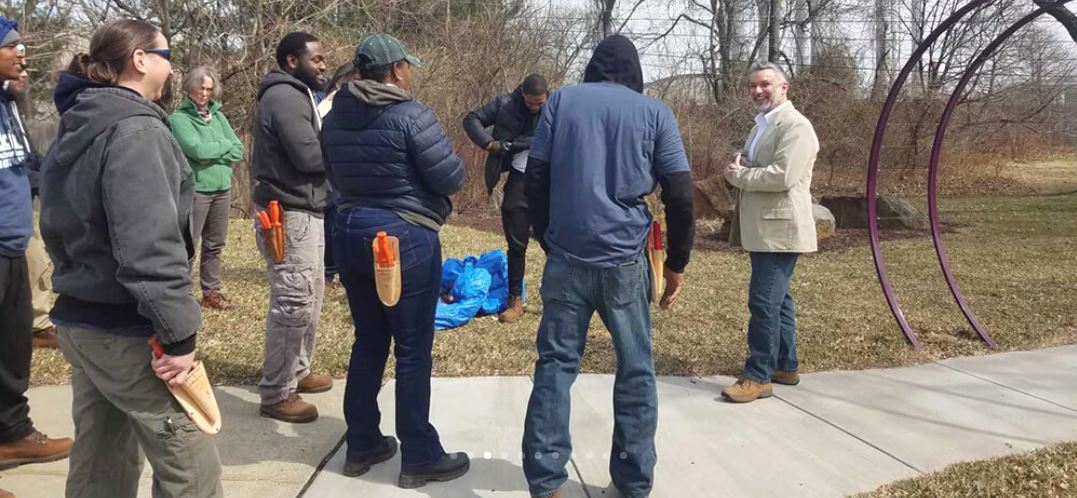
Branches to Chances trains unemployed, underemployed, and/or previously incarcerated individuals in the field of landscape horticulture, incorporating a life skills curriculum and preparing individuals with sought-after skills and knowledge for job placement with partnering businesses at the program’s conclusion. The program, like many aspects of our lives, was impacted when COVID-19 shut the world down.”
The pandemic hit just as we had started our 2020 BtC program, and everything came to an abrupt halt as the reality set in of what exactly we were dealing with,” said Vikram Krishnamurthy, DCH Executive Director. “When we started to see signs from public health that a possibility existed for a 2021 class, I reached out to Basha Silverman at JFS, knowing the curriculum had to include greater mental health and mindfulness supports and services for our trainees in light of everything that 2020 brought into our lives.”
Partnering with JFS, regional experts in the fields of mental health, counseling, and social services, our education and training team emerged from 2020 with a 2021 BtC curriculum that wholly incorporates accessible and effective behavioral health and trauma support to mitigate distress during COVID-19, develop appropriate coping and decision-making skills, and establish a network of support for the participants. This addition represented a tremendous educational milestone for our program.
“JFS Delaware is grateful for our continued and deepening relationship with DCH and the participants of their Branches to Chances program. This collaboration thoughtfully combines the JFS mission to strengthen and support community members with DCH’s mission and global urgency to preserve and create green spaces,” said Basha Silverman, CEO of JFS Delaware. “JFS is committed to providing accessible, holistic support and resources to help vulnerable individuals and families who need us, and we look forward to delivering our comprehensive counseling and support services to community members in the BtC program, who are working hard to regain their stability and contribute to the health and beauty of our community.”
Throughout the 9-week 2021 BtC program, JFS licensed clinicians will deliver eight sessions covering topics such as COVID impacts globally and personally, stress and anger management, problem solving, DST skills, Black Lives Matter and racial injustice, grief and loss, and mindfulness. These sessions are in addition to the hands-on, in-the-field horticulture and arboriculture skills training they receive, as well courses in financial literacy (with Stand By Me Financial Coaching), computer literacy (with the West End Neighborhood House), and job skills (at the Wilmington HOPE Commission Achievement Center).
For more information on the Delaware Center for Horticulture’s Branches to Chances job training program for unemployed, underemployed, and/or previously incarcerated individuals, visit www.thedch.org/education.
Written by: Emma Driban, JFS Content Developer
Why is this year different from all other years?
Every year at the Passover Seder, family and friends take part in the retelling of the Exodus story, completing symbolic rituals, and asking thought-provoking questions. The Passover story devotes long passages to descriptions of the Jews’ slavery and suffering in Egypt, and while it’s by no means the same, 2020 left many of us suffering too. Between the global pandemic, unemployment highs, social unrest, and political events, it may feel like the past year has left us little to celebrate. But, at its roots, the story of Passover is one of salvation and freedom.
We learn from the Passover story the connection between suffering and redemption. Through the biblical tale, we are reminded of the electrifying idea that redemption is an outgrowth of suffering. Suffering peels away the superficial and lays bare the core—it reveals levels of strength and resilience those who suffer wouldn’t otherwise know they possess. Of course, we all have free will and the choice in how we respond to our hardships. Some might lean into reactions of bitterness and resentment, but for those who choose otherwise, suffering can lead to growth and greatness.
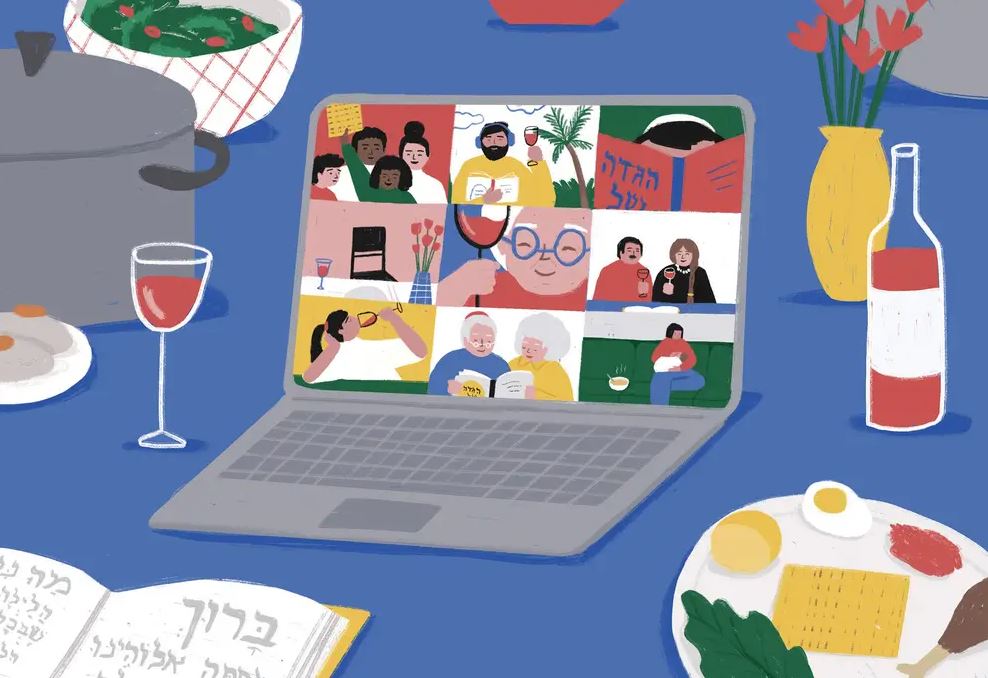
Every year on Passover, we partake of the maror to remember the bitterness of those forced into slavery. But maybe each of us has our own “bitter herbs of life” we struggle with every day—a mental health challenge, the loss of a loved one, the loss of a job, sudden illness. Bitterness can take many forms, big or small, temporary or chronic, individual or institutional. It’s easy to ruminate on these hardships, but we can also learn to appreciate the sweetness and relief that come from withstanding and acting against the adversities, like the charoset sweetening the bitter herbs on the seder plate.
In her March 2020 New York Times article “The Power of Passover During a Plague,” Alana Newhouse points out: “Most Jews throughout history have not been free, whether from murderous regimes or famines or pandemics. What we have been is devoted to the idea that we deserve to be.”
Our bitterness and suffering prompt us to seek freedom, make changes, voice our opinions to improve our lives and our communities. Had the Jewish people never felt the bitterness of slavery, would they have been driven out of Egypt? Would the Jewish people and our communities around the world be what they are today?
The story of Passover is one of perseverance. We must persist through bitter times and work towards our redemption. It is difficult to stay a hard course, but endurance pays off. And if 2020 has taught us anything, it’s about endurance—following stay-at-home orders, adhering to health and safety guidelines, refraining from seeing loved ones, watching social injustice divide our country. It hasn’t been easy, but there is hope these trying times are coming to an end.
After this past year, “we can relate more to the entire story of our biblical ancestors—not just the joy of freedom, but the agony of oppression and being at the mercy of forces beyond our control,” said Rabbi Rebecca Dubowe in a 2020 interview with Charlie Schlenker. This new perspective helps us better appreciate the good things in life and the freedoms we still have, even if they feel a little different.
Everyone has their Egypt. It can be intimidating but we must move forward, wandering through our own deserts, until we reach the promised land. Bitterness alone, without direction, can quickly become more painful and self-destructive, but with help, optimism, and action, the bitter herbs of life may just become our springboards to redemption.
Searching for the sweetness in your bitter herbs?
To start your journey to freedom and recovery, complete our online intake form.
Excerpts from
Written by: Marina Affo
Published in the Delaware News Journal
Read the full article >>>
Lack of socialization is a big theme for many stuck at home during this time. While some have been able to deal with it, there are many that are experiencing increased mental health issues as a result.
“Collective trauma is when a trauma happens to a group,” said Basha Silverman, CEO of the Jewish Family Services of Delaware.
She said the pandemic is one such event, while other examples include school shootings or events like 9/11. Right now, as everyone is isolated and having to watch people get sick and die, the greater community is experiencing a collective trauma.
As a result, the psychiatry and case management nonprofit now has 90 people on its waitlist for services. Before the pandemic, it usually had three or four.
And everyone is experiencing this trauma differently, she said, especially depending on what people do for their professions. Front-line health care workers are seeing different experiences than teachers, as are other occupations.
“There’s the saying, ‘We’re all in the same boat.’ That’s actually not true,” Silverman said. “We’re all in the same storm. But we have different boats.”
The stress from this ongoing pandemic can manifest in different ways, said outpatient therapist Padmaja Charya, also at Jewish Family Services of Delaware.

(Photo by William Bretzger, News Journal)
“Having to cope with the unknown can lead to hopelessness, powerlessness and also just depression,” she said.
Charya, who sees children as young as 2 up to adults, said if people don’t have the tools to deal with these feelings, it can lead to atypical behavior like anger outbursts, irritability and frustration. This can then also lead to issues like inability to focus, nightmares, poor sleep and poor appetite, among others.
“Some of these behaviors are also what we see in trauma and PTSD (post-traumatic stress disorder) because this can be a very traumatic time and is a very traumatic time for many of us,” Charya said.
To help, she often advises people dealing with these emotions to tell themselves it is OK to be feeling this way – whether it be scared, anxious, angry or hopeless.
“Feeling those emotions is not wrong,” Charya said. “There are ways to work through those emotions and, of course, counseling is one avenue. But for those who don’t feel comfortable with counseling, it’s OK to process your thoughts and feelings with someone you trust.”
She said this can be a co-worker, a friend or a family member.
Charya also noticed that many people have said they’ve lost interest in activities. She encourages them to engage in tiny activities that bring them joy instead.
“Giving yourself 30 minutes to watch your favorite show or take a longer shower or just sitting and doing nothing,” she said.
She also said people can try a 4-7-8 breathing exercise. This technique involves breathing in for four seconds, holding it for seven seconds, then breathing out of the mouth for eight seconds.
“It’s kind of slowing your heart rate,” she said, “and when you’re slowing your heart rate, it’s sending the message to your brain and your body that it’s OK, it’s time to relax.”
And while many are struggling, Charya said that a year later she has also seen many of her clients feeling a greater sense of hope now that vaccines are available.
“They are seeing that it is possible to get through this and although it might not return exactly how it used to be, we’re also not where we were a year ago,” she said. “They realize that they’re a lot more resilient than they thought they would be.”
Jewish Family Services of Delaware:
(302) 478-9411 or info@jfsdelaware.org
Get started today by completing our online intake form.
National Suicide Prevention Lifeline: (800) 273-8255
Delaware Hope Line: (833) 9-HOPEDE, or (833) 946-7333
Every year, March is designated Women’s History Month to honor women’s contributions in American history. The month was set aside to recognize the specific achievements women have made in a variety of fields; at JFS, we are celebrating women who have impacted the field of psychology, who paved the way for where we are today, and those who promoted equality in a formerly male-dominated field.
 Mary Whiton Calkins, a philosopher and psychologist, had the distinction of being the first woman to serve as the president of the American Psychological Association (APA), as well as the American Philosophical Association. She was born in Hartford, Connecticut in 1863, graduated from Smith College, and went on to teach at Wellesley College until her death in 1929. Though she studied at Harvard and passed all the requirements for a Ph.D. with distinction, she was denied her doctoral degree because she was a woman.
Mary Whiton Calkins, a philosopher and psychologist, had the distinction of being the first woman to serve as the president of the American Psychological Association (APA), as well as the American Philosophical Association. She was born in Hartford, Connecticut in 1863, graduated from Smith College, and went on to teach at Wellesley College until her death in 1929. Though she studied at Harvard and passed all the requirements for a Ph.D. with distinction, she was denied her doctoral degree because she was a woman.
“The student trained to reach decisions in the light of logic and of history will be disposed to recognize that, in a democratic country, governed as this is by the suffrage of its citizens, and given over as this is to the principle and practice of educating women, a distinction based on difference of sex is artificial and illogical.”
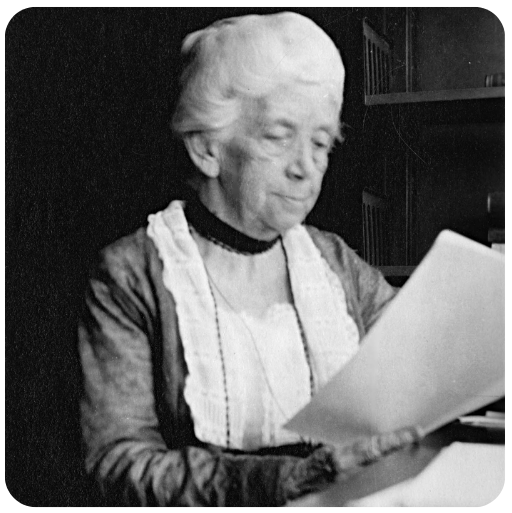 Christine Ladd-Franklin was not only a female leader in psychology, but also a staunch advocate for women’s rights in academia. She had widely varied academic interests and is known for rejecting Hermann con Helmholtz’s theory of color vision and developing a highly influential theory of her own. Ladd-Franklin studied at John Hopkins University, finishing her dissertation “The Algebra of Logic” in 1882, but was not awarded her doctorate degree until 44 years later. She is remembered today for her work in psychology, as well as for her influence as a pioneer in a field once dominated by men.
Christine Ladd-Franklin was not only a female leader in psychology, but also a staunch advocate for women’s rights in academia. She had widely varied academic interests and is known for rejecting Hermann con Helmholtz’s theory of color vision and developing a highly influential theory of her own. Ladd-Franklin studied at John Hopkins University, finishing her dissertation “The Algebra of Logic” in 1882, but was not awarded her doctorate degree until 44 years later. She is remembered today for her work in psychology, as well as for her influence as a pioneer in a field once dominated by men.
“Is this a good time for you to hold the mediaeval attitude of not admitting me to your coming psychological conference . . . at my very door? So unconscientious, so immoral—worse than that—so unscientific!”
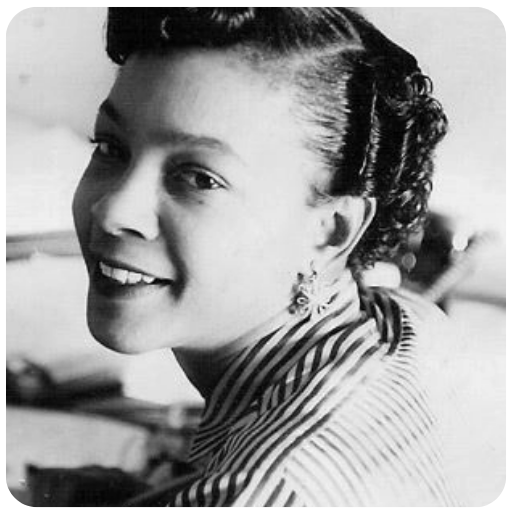 Mamie Phipps Clark was a social psychologist and community health pioneer whose work led to the historic research used to make racial segregation unconstitutional in American public schools. Clark was the first Black woman to receive a doctorate in psychology from Columbia University in 1943 and her work on the doll study played a key role in the Brown v. the Board of Education case in 1951. Her research uncovered the dynamics of racial attitudes in children and helped people recognize how early prejudice and inferiority are introduced in children. Clark also focused much of her work around the Northside Center for Child Development, which provided psychological and educational services to minority children and their families to help them overcome the effects of racism and discrimination. Her research on racial identity helped set the tone for future research on self-concept among minorities.
Mamie Phipps Clark was a social psychologist and community health pioneer whose work led to the historic research used to make racial segregation unconstitutional in American public schools. Clark was the first Black woman to receive a doctorate in psychology from Columbia University in 1943 and her work on the doll study played a key role in the Brown v. the Board of Education case in 1951. Her research uncovered the dynamics of racial attitudes in children and helped people recognize how early prejudice and inferiority are introduced in children. Clark also focused much of her work around the Northside Center for Child Development, which provided psychological and educational services to minority children and their families to help them overcome the effects of racism and discrimination. Her research on racial identity helped set the tone for future research on self-concept among minorities.
“A racist system inevitably destroys and damages human beings; it brutalizes and dehumanizes them, blacks and white alike.”
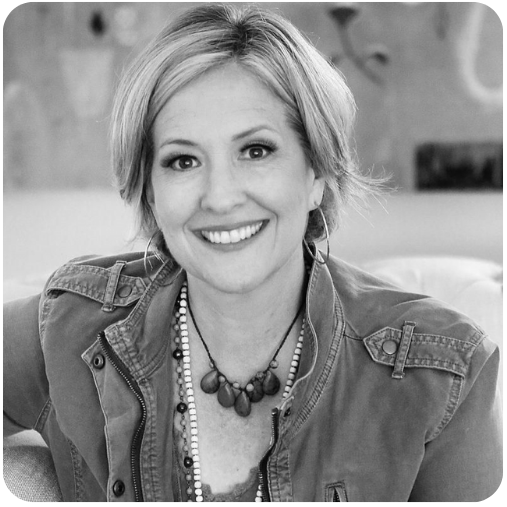 Brené Brown is the founder and CEO of The Daring Way and COURAGEworks, an online learning community that focuses on braver living and loving. Brown is also the founder of Brave Leaders Inc., a group dedicated to making her latest research on leadership development and cultural change accessible to entrepreneurs and leaders alike. Her TED talk, The Power of Vulnerability (2010), is one of the most viewed in the world and discusses self-worth, connectedness, feeling compassion, and the importance of embracing vulnerability.
Brené Brown is the founder and CEO of The Daring Way and COURAGEworks, an online learning community that focuses on braver living and loving. Brown is also the founder of Brave Leaders Inc., a group dedicated to making her latest research on leadership development and cultural change accessible to entrepreneurs and leaders alike. Her TED talk, The Power of Vulnerability (2010), is one of the most viewed in the world and discusses self-worth, connectedness, feeling compassion, and the importance of embracing vulnerability.
“Vulnerability sounds like truth and feels like courage. Truth and courage aren’t always comfortable, but they’re never weakness.”
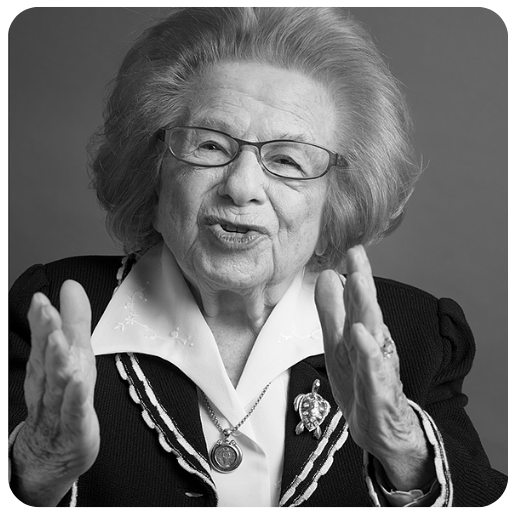 Karola Ruth Westheimer, better known as Dr. Ruth, is a sex therapist, author, talk show host, and Holocaust survivor. She jumpstarted her career when she gave a lecture to New York broadcasters about the need to sex education programming. Soon after she was hired by WYNY-FM radio station to host her show, Sexually Speaking, on a weekly basis. Her career is prolific and she continues write books, teach, and lecture, in addition to her strong social media following. Dr. Ruth’s non-judgmental attitude to fans’ sexual queries boosted her popularity and helped end the stigma around discussing sexual health and sexual education.
Karola Ruth Westheimer, better known as Dr. Ruth, is a sex therapist, author, talk show host, and Holocaust survivor. She jumpstarted her career when she gave a lecture to New York broadcasters about the need to sex education programming. Soon after she was hired by WYNY-FM radio station to host her show, Sexually Speaking, on a weekly basis. Her career is prolific and she continues write books, teach, and lecture, in addition to her strong social media following. Dr. Ruth’s non-judgmental attitude to fans’ sexual queries boosted her popularity and helped end the stigma around discussing sexual health and sexual education.
“If you’re facing a problem, don’t tell yourself that you can’t do it. Convince yourself that you have the strength to deal with almost anything because of the way you were raised. And you do!”
 Anna Freud, daughter of Sigmund Freud, is highly regarded for her word expanding her father’s ideas and for helping develop the field of child psychotherapy. She influenced other psychologists like Erik Erikson, introduced the concept of defense mechanisms, and expanded interest in the field of child psychology. Freud’s work highlighted the significance of abandonment and attachment as they influence the developmental phases, uncovered the importance of the ego and its ability to be socially manipulated, and recognized the key role of independence and expression in childhood development.
Anna Freud, daughter of Sigmund Freud, is highly regarded for her word expanding her father’s ideas and for helping develop the field of child psychotherapy. She influenced other psychologists like Erik Erikson, introduced the concept of defense mechanisms, and expanded interest in the field of child psychology. Freud’s work highlighted the significance of abandonment and attachment as they influence the developmental phases, uncovered the importance of the ego and its ability to be socially manipulated, and recognized the key role of independence and expression in childhood development.
“I was always looking outside myself for strength and confidence but it comes from within. It is there all the time.”
These iconic women who helped advance the field of psychology, fought for gender equality, and influenced other pillars in the field. For more information on the women referenced here, please view our sources.
Sources:
By: Emma Driban, JFS Content Developer
When we think of therapy, crayons and puppets might not be the first things to come to mind. Maybe you think of sitting on a couch and talking through your troubles, but when children require psychological attention, a direct approach is not always the best approach. Play therapy is a more subtle method through which therapists help children express what they find troubling when language fails them and provide a safe space to heal.
The Association for Play Therapy (APT) defines play therapy as “the systemic use of a theoretical model to establish an interpersonal process wherein trained play therapists use the therapeutic powers of play to help clients prevent or resolve psychosocial difficulties and achieve optimal growth and development.”
Put simply, play therapists use play to help their clients more effectively communicate and resolve their troubles. But, like most aspects of our lives, therapy sessions have been impacted by the COVID-19 pandemic. Virtual sessions offer clients the chance to continue receiving sought-after support in a safe way, even though the sessions may look slightly different.
“What’s tricky about play therapy online,” says Georgianne Sheehy, a therapist and licensed clinical social worker at Jewish Family Services (JFS), “is that, typically, you have a lot of materials at hand—toys and games and activities—and we are trying to recreate that online.”

Often, just hearing a familiar voice or seeing a familiar face brings a sense of connectedness and comfort. Fortunately, online games and drawing programs allow therapists to provide a similar kind of engagement to what clients could receive in-person. JFS’ Director of Clinical Supervision and Registered Play Therapist, Jane Galli, comments, “Online games and sand trays offer some non-directive play” akin to what an in-person session might offer. Non-directive play allows the child to drive the session and control the pace and course of the play.
Sheehy adds, “What I most enjoy is [a child’s] ability to tell stories. Their story really illustrates what is going on in their life. . . Play therapy gives the child a lot of freedom to work through things.”
“[We] provide children with a wonderful collection of figures, doll house furniture, fantasy creatures, and we allow them to tell a story,” Sheehy explains. “It’s really expressive for them! In a traditional kind of therapy, we can talk or work through feelings to process and get relief from them. Children don’t often talk directly about their problems, but they can take play and props and, very often, those same troubles are worked out.” Though sessions are virtual, online versions of the same tools allow JFS’ therapists to continue helping children.
With schools closed, students get most of their social interactions through their screens. Online games and video games provide a safe way for children to spend time with friends, but they can’t make up for the missing face-to-face interactions.
“Experiencing school online is like operating in their own bubble with some connection to their classmates and teacher, but it’s nowhere near the same. It’s really hard on them and they miss it a lot,” says Sheehy. Studies show how crucial social interaction is for development; it’s where children learn to navigate relationships and learn about themselves and the other people around them. “It’s just something you can’t recreate online.”
Time away from computers, phones, and televisions is essential when so many of our day-to-day activities are tethered to our screens. Play can be a powerful tool for homebound families; parents can help their kids by going back to basics like coloring, building with Legos, and playing with Play-Doh. Galli adds that “playing outside is a great way for kids to get a break from all of their screens.”
Play is a great way for parents to learn what is going on with their children, what their worries and fears might be. “It may look like play, but it’s really child’s work.” Sheehy elaborates, “They work out all kinds of things through play.”
Play therapy offers children a safe space where they can express themselves and work through their worries without facing them head on; it allows clients to deal with difficult topics in a comfortable and familiar way. “Research supports the effectiveness of play therapy with children experiencing a wide variety of social, emotional, behavioral, and learning problems,” states the Association for Play Therapy. It can help children become more responsible for their behaviors, develop new problem-solving capabilities, cultivate empathy and respect for others and their selves, and much more.
Jane Galli points out that “children heal differently than adults—they heal at their own pace.” Where working through an issue with an adult might just consist of a conversation, “working with children requires a lot more creativity.” Children need to work through their issues on their own time and of their own volition. “It makes the healing more complete.”
Interested in therapy for yourself or your child?
Get started today by completing our online intake form.
Written By: Janet Teixeira, Executive Director of Cancer Care Connection
There’s a light at the end of the COVID-19 pandemic tunnel… but it’s still a ways off.
Cancer Care Connection’s team of Oncology Social Workers has some ideas, especially for older adults, to help you cope with the isolation many of us are experiencing.
Most importantly, they recommend reaching out to connect with others.
Maybe you’re asking, “Reach out to whom? How? Why?”
Whether you’re affected by COVID-19, cancer or another disease, or have a loved one limited by Alzheimer’s or Parkinson’s disease, or simply feeling lonely, one thing is certain—human contact helps. You’ll feel a lift in mood and energy from reaching out to someone…and so will they.
Here are some ideas for how to foster connections and community from afar, and take care of yourself and others during lockdown:
Find A Phone Pal. Remember when we were kids and some of us had pen pals? We’d be matched with someone from another town and write to them, maybe once a month. How about finding a phone pal to get through this isolating time? Think about some of the people you’d chat or pass the time with in your neighborhood or at your local community center. They don’t have to be your best friends, but maybe someone you know is alone, missing human contact as much as you are. Give them a call.
And check in regularly! You may have talked to others at least weekly before…why not now, over the phone?
 Who’s Zoomin’ Who? Have you tried zoom on your computer yet? You might be surprised by how easy it is! Zoom calls are perfect for breaking up isolation because you can actually see who you are talking to on the screen. To learn how to zoom, check with a grandchild, family member, or almost anyone who’s working…zoom is how students are learning and business is being conducted these days.
Who’s Zoomin’ Who? Have you tried zoom on your computer yet? You might be surprised by how easy it is! Zoom calls are perfect for breaking up isolation because you can actually see who you are talking to on the screen. To learn how to zoom, check with a grandchild, family member, or almost anyone who’s working…zoom is how students are learning and business is being conducted these days.
Speaking of grandchildren, think about re-introducing yourself to them or other family members by phone or zoom. This pandemic gives you the perfect excuse to increase your contact with them… “I just thought I’d call to say ‘hi’ since I haven’t seen you in so long.” Or “Just checking to make sure you’re still healthy.” Maybe you had experienced a little generation gap before this all started; the pandemic gives you reason to close that gap.
Stay fit. Remember, you can still take part in community or fitness center classes, they just may require you make an appointment before you go. This is a great way to get out of the confines of your house and see some familiar faces…even if it’s from across the room.
Don’t be afraid to ask for help. Sometimes, asking for help is the hardest thing for us to do. We think we should be strong—we should be able to handle things, we need to be independent. That’s a lot of pressure! And it hardly feels natural or possible to do so during the prolonged isolation caused by the pandemic. It’s perfectly okay—and highly encouraged—to invite people to connect or ask for help.
After so many months at home, maybe you don’t realize that many of the people you used to see regularly are still there and reachable by phone and email. They would be glad to hear from you! Think about your religious leaders, your neighbors, or other people you could connect with—check in! Ask for help if you need it.
And if you need additional support, consider therapy. We know it’s tough to ask for help, especially from professionals, but mental health is just as important as physical health, especially during this odd and trying time. We are all facing so many new challenges and unknowns, and it’s no surprise that many of us are experiencing more anxiety and isolation than before. Luckily, Cancer Care Connection is now proudly affiliated with Jewish Family Services of Delaware, an organization which provides counseling and support services to individuals, families, community members, and caregivers. Their team of licensed therapists, psychiatrists, a geriatrician, and case managers is trained to respond to community needs…and equipped to do so virtually during the pandemic! And, if you’re wondering, their services are available to everyone, regardless of your background.
Of course, Cancer Care Connection is also here to support those affected by cancer. You don’t even have to be a cancer patient yourself—maybe you’re caring for one, or have a loved one in another state, or a friend or neighbor affected by cancer…if you’re worried, would like to help, or have a question, call our Oncology Social Workers today at 302-266-8050.
Speaking of cancer…keep up with cancer screenings, like mammograms and colonoscopies. Be ready to take extra precautions to stay as safe as possible during the pandemic, but don’t put these important screenings off until COVID-19 is over. Contact your healthcare provider to determine the safest way to continue getting the care you need.
Janet Teixeira, a Licensed Clinical Social Worker, is the Executive Director of Cancer Care Connection. If you or a loved one are looking for help navigating cancer and related stressors, connect with an Oncology Social Worker today at 302-266-8050.
Want to explore therapy with a trusted team of professionals? Learn more about Counseling at JFS or start your therapy journey today by submitting an online intake form. Contact our Intake Department at 302-478-9411 x306 or Intake@jfsdelaware.org if you have any questions.